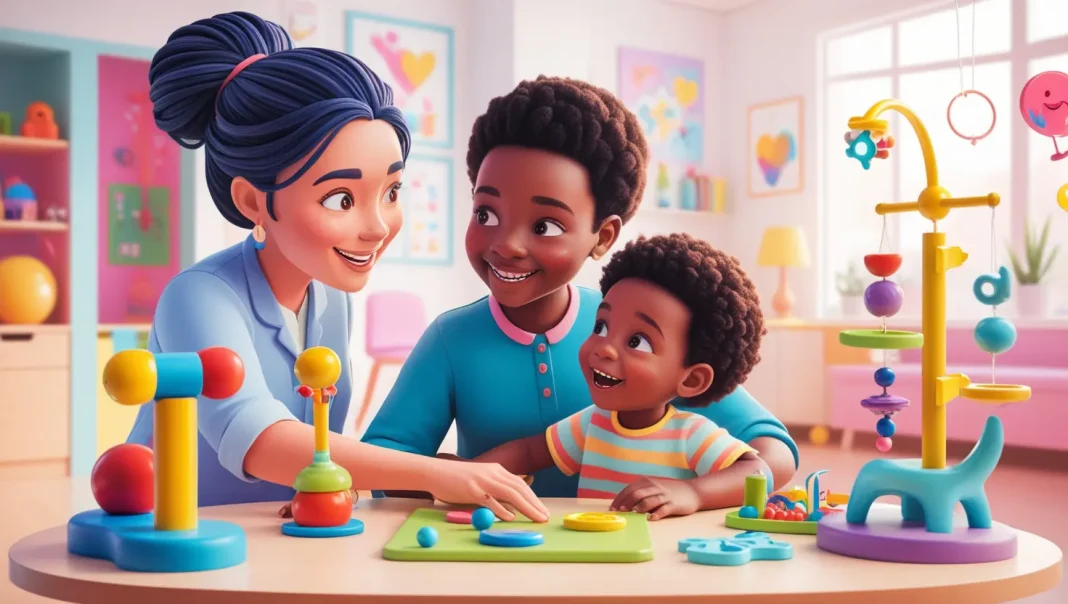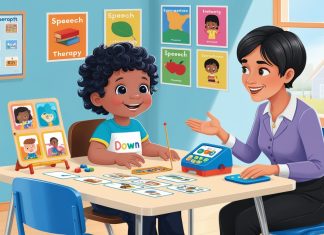Understanding Kids Autism Behavior Therapy
Navigating the world of autism can feel like exploring uncharted territory for many parents. Kids autism behavior therapy provides a map to help children with autism thrive, grow, and connect. But what exactly does it entail, and how can it make a difference in your child’s life? Let’s dive in.
What is Autism?
Defining Autism Spectrum Disorder (ASD)
Autism Spectrum Disorder (ASD) is a developmental condition that impacts how individuals communicate, behave, and interact with the world. It’s called a “spectrum” because the symptoms and their intensity vary widely.
Early Signs and Symptoms of Autism
Some early signs include delayed speech, limited eye contact, repetitive behaviors, and sensitivity to sensory stimuli. Recognizing these signs early can lead to timely intervention and better outcomes.
Importance of Behavior Therapy for Kids with Autism
How Behavior Therapy Helps Kids with Autism
Behavior therapy is like a compass guiding children toward positive behaviors and skill-building. It focuses on reducing disruptive behaviors while fostering social, emotional, and communication skills.
Behavioral Challenges Faced by Kids with Autism
Children with autism might struggle with tantrums, difficulty adapting to change, or challenges in social interaction. Behavior therapy targets these specific hurdles, turning obstacles into opportunities.
Types of Autism Behavior Therapies
Applied Behavior Analysis (ABA)
ABA is one of the most widely used therapies. It breaks down complex tasks into smaller, teachable steps, using positive reinforcement to encourage learning and growth.
Cognitive Behavioral Therapy (CBT)
CBT helps children manage anxiety and emotions by reshaping negative thought patterns. It’s especially effective for kids struggling with fear or frustration.
Play Therapy
Play therapy uses fun activities to teach social and emotional skills. It’s all about learning through play, making therapy enjoyable and effective.
Speech and Occupational Therapy Integration
Speech and occupational therapies often complement behavior therapy by enhancing communication skills and improving daily functioning abilities.
Key Techniques in Behavior Therapy
Positive Reinforcement
Rewarding good behavior encourages kids to repeat those actions. Whether it’s a sticker, a cheer, or a high-five, small rewards can go a long way.
Modeling and Imitation
Therapists and parents model desirable behaviors for kids to mimic, helping them learn by example.
Visual Supports
Pictures, charts, and schedules make abstract concepts more concrete, making it easier for children to understand expectations.
Role of Parents in Behavior Therapy
Working with Therapists
Collaboration between parents and therapists is key. Regular updates and shared strategies ensure consistency between therapy sessions and home life.
Home-Based Strategies
Parents can incorporate therapy techniques at home, turning everyday moments into learning opportunities.
Choosing the Right Therapy for Your Child
Factors to Consider
Every child is unique, so consider your child’s specific needs, strengths, and preferences when choosing a therapy.
Importance of Individualized Therapy Plans
Tailored plans ensure therapy addresses your child’s unique challenges, making it more effective.
Success Stories: Real-Life Impact
Inspiring Changes in Kids’ Lives
Many families have seen incredible progress, from improved communication to better social skills, thanks to dedicated behavior therapy.
Common Misconceptions About Autism Behavior Therapy
Debunking Myths
Some believe therapy is a one-size-fits-all solution or that it “cures” autism. In reality, therapy is about helping children reach their full potential, not changing who they are.
Conclusion
Kids autism behavior therapy isn’t just about teaching skills; it’s about unlocking potential and building confidence. With the right tools and support, children with autism can lead fulfilling, meaningful lives. The journey may be challenging, but every step forward is a victory worth celebrating.
FAQs About Kids Autism Behavior Therapy
- What age is best to start behavior therapy for kids with autism?
The earlier, the better! Early intervention can lead to more effective outcomes, but therapy can benefit kids of any age. - How long does behavior therapy take?
The duration varies depending on the child’s needs, but consistent, ongoing therapy yields the best results. - Is behavior therapy covered by insurance?
Many insurance plans cover autism therapies. Check with your provider for specific coverage details. - Can parents do behavior therapy at home?
Absolutely! Therapists often provide strategies and activities for parents to practice at home. - Does behavior therapy work for all children with autism?
While results vary, most children benefit significantly from therapy tailored to their needs.


























